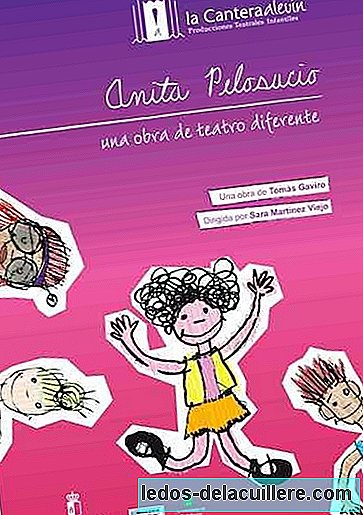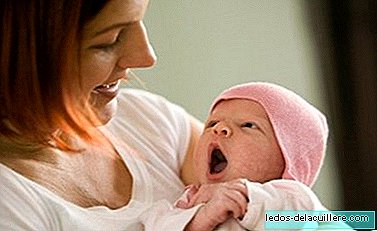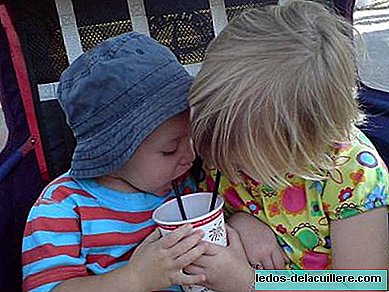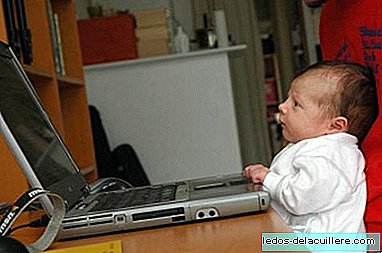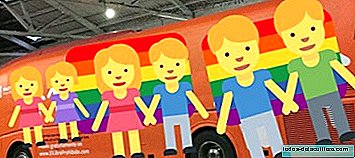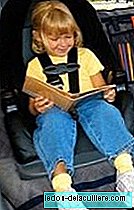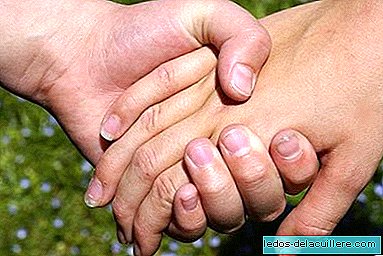
It is known by everyone that fraternal coexistence has certain peculiar characteristics: who has not ever felt jealous of a brother or thought that they loved his brother more than he? If there is also some type of disability in any of the siblings, these characteristics increase.
When we hear about a child with a disability, in most cases more attention is paid to what parents feel and think but, What happens to the siblings of the disabled child?. It may be that he sees his future affected by the duty of taking care of his brother, or that various forms of guilt are created.
Therefore, it should be borne in mind that the consequences and repercussions not only affect the parents: they also affect the siblings, and that these vary depending on whether the siblings are born before or after the disabled brother.
What happens if you are the older brother?
If born before the disabled brother, is opposed to the arrival of a new brother's family, with certain special characteristics, and the repercussions that this has on its members. This older brother can live a stage where you feel emotionally abandoned.
The parents are completely absorbed by the situation of the new family member: the emotional impact of the situation, various medical consultations, hospitalizations, specific treatments, procedures ... And all this, for the brother has a great impact, and especially the mother due to the special emotional bond that unites them, whether or not they enter a state of depression. The child may feel that they "disinterested" or "carefree" about him, causing him to face a different situation, and that he has trouble understanding, of the bond that existed between him and his parents.
His parents may no longer interact with him as they did before, they don't play with him so much, etc. This makes the child perceive that, despite his efforts, his mother and father no longer act like the parents he had, but are now more distant.
Do not forget that the child indirectly carries the weight of the suffering of his parents and that at times, this can become excessive and overflowing for him, since he may not have the resources that allow him to understand the sudden change that has happened in his life.
Following the new family situation, the child may feel that he has run out of emotional support and that he is facing distant, sad, vulnerable and fragile parents. This situation may lengthen over time, beyond the first moments of the impact of the new situation.
What happens if you are the younger brother?
When born after a brother who has a disability, the context found in the family has certain peculiarities. Many times this second child is expected to keep the other company, even in the future when the parents are gone. There may also be feelings of restoration of the pride of these parents about him, possibly hurt by the limitation of his other son.
Its normalized evolutionary development provokes responses of amazement and pride, of the type "this child grows alone", "is so easy to carry", "gives no work" ... And this growth without stumbling blocks and "easy" is a source of joy for relatives, not always expressed by fears of hurting or causing jealousy of the disabled child.
It may happen that this natural development of the child without disabilities can be hindered by family members so that differences with their older siblings are not very evident. Thus, a particularly conflictive moment for the younger brother, as for the rest of the family, is one in which due to his normal evolutionary development he manages to overcome his older brother with disabilities in acquisitions.
It is a moment that goes against the natural patterns of development (since it is assumed that the older brother will always go ahead in the development of skills) and the temporality that can be generating guilt and fear that this situation will damage and harm the child whose disability has been below. The younger brother can live this betrayal overcoming his disabled brother, which leads to a brake or unconscious sabotage of these achievements.

Brothers and feelings of guilt
The intense and contradictory emotional experiences typical of any relationship (jealousy and other diverse feelings) between siblings are increased in this relationship; In addition, there are peculiarities in this link that may even be guilt generators.
Children usually imagine that everything that happens around them is because they have thought about it and wanted it that way. Therefore, his brother's disability is also because they have thought so, generating a feeling of responsibility, guilt and regrets in relation to his brother.
Guilt is also associated with the frail, helpless and suffering image of his brother compared to him, who is the "healthy" and "son of what his brother lacks". Thus, the brother without disability feels like someone "privileged" and "usurper", in front of a brother "dispossessed" and "usurped."
On many occasions the regrets and blame for own achievements also generate feelings of guilt. In these cases, the failures could be explained as a punishment for what is possessed or achieved, given the lack or scarce achievements of the other. In turn, the brother, with his disability, postponed in his achievements and personal accomplishments, can increase his brother's guilt by standing in front of him by accounting for the achievements he achieves and holding him accountable for his own failures.
At the same time that the brother without disability feels taking the place of someone in debt for being the privileged son who owns what the brother lacks, he can simultaneously feel like someone who has been "robbed" of the attention and love of his parents . And because of this, because of this hostility towards the brother, feelings of guilt and remorse are also generated that lead to silence and repress all negative manifestations.
Soon we will talk about other situations and circumstances that may occur in siblings of children with disabilities
Photos | fromcolletewithlove, amcdawes on Flickr On Babies and more | When I grow up I want to be like my older brother





